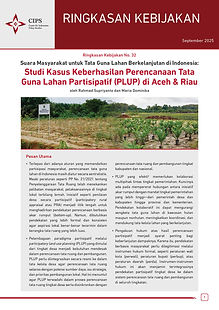Impact of Indonesia's Content Moderation Regulation on Freedom of Expression

Penulis

Pingkan Audrine

Indra Setiawan
The use of internet and digital platforms in Indonesia has been growing massively, where information exchange between users is continuous and fast-paced, especially on user-generated content (UGC) platforms such as social media, digital marketplaces, knowledge sharing, and entertainment. This highlights the need for content moderation policy to monitor UGC on the internet and prevent the spread of harmful content. Ministry of Communications and Informatics (MOCI) Regulation No. 5/2020 attempts to regulate content moderation by establishing MOCI’s authority to request that private electronic system organizers (ESOs) take down prohibited content within a restricted time period.
While weak content moderation comes with a risk of harmful material, excessive content moderation may turn into excessive censorship that could violate individual freedom of expression. To address issues in MOCI Regulation No. 5/2020, this policy paper proposes several recommendations for Indonesia’s content moderation policy.













































